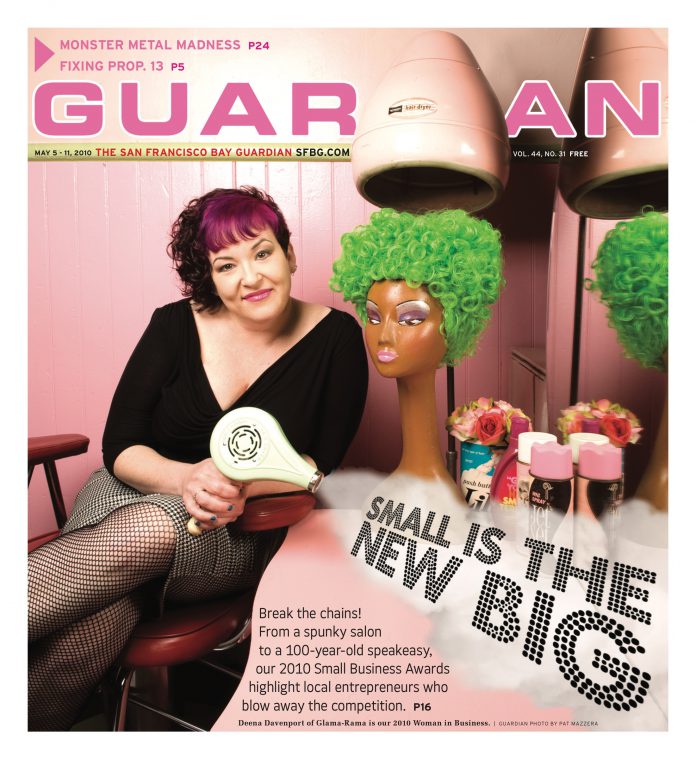johnny@sfbg.com
FILM In taking on the subject of family in the documentary October Country, co-directors Michael Palmieri and Donal Mosher face some imposing specters, and I’m not just talking about the varied stories of the Mosher family, who step in front of the camera. If there’s any micro-genre within documentary that has become embattled over the past decade, it’s the family portrait, thanks to controversial or contentious works such as Andrew Jarecki’s Capturing the Friedmans and Jonathan Caouette’s Tarnation (both from 2003), son-of-Gray Gardens freakouts which incited claims of exploitation and sensationalism on their paths to a larger public profile.
Palmieri’s and Mosher’s movie is a quieter work, yet it isn’t folksy in a complacent Sundance manner, either. (It’s worth noting that October Country has picked up its fest-circuit awards outside of Park City.) The list of the maladies plaguing the Mosher clan — physical abuse, drug abuse, war trauma, custody battles, and abortion, to name a handful — would provoke an ambulance-chasing impulse in some filmmakers, blood ties be damned. But Palmieri (who edited and did cinematography) and Mosher (a former San Francisco resident whose photo essays on his family were shown at Artists’ Television Access) realize these are common American problems, and their treatment of them is at once deeper and more ephemeral. They use the passage of a year from one Halloween to the next to reveal the changes wrought — or evident — on a person’s face, and when they can, a person’s life.
While volatile men have left a mark on the Mosher women, October Country makes a quiet case for the family as an enduring matriarchy by beginning with introductions of its female generations: grandmother Dottie, daughter Donna, granddaughters Daneal and Desi, and infant great-granddaughter Ruby. (Wiccan sister-in-law Deniece soon hovers at the fringes of the domestic drama, in semi-alignment with co-director Donal’s Halloween framework.) Tweenage Desi is the film’s chief scene-stealer, through gruff observation rather than cutesy antics. "Videogames don’t really make you smarter, but they make your hands move faster," she observes minutes into the film, describing the hobby as "education for your fingers." The stoic and sole father of the house is Vietnam vet Don. Foster son Chris deploys his callow charm while nursing penchants for pill popping, weed dealing, and shoplifting. By film’s end his masculine good looks show signs of giving way to gauntness and gender ambiguity.
October Country has a light touch, rarely giving way to easy associations, and avoiding the reality television ploy of inciting arguments in all but one scene. Its look at Daneal’s young motherhood is just a side of a many-sided die, yet more perceptive than whole hours devoted to the subject by MTV documentaries. Cigarettes in hand, Dottie, Donna, and Daneal hold forth on life, while the camera lights upon abandoned GED books and other forms of abandonment signified by clutter. If this sounds grim, the beauty of the cinematography — attuned to the colors of fall and winter and the beauty of these people and their home — offsets the futility and depression. The structure of the story is loose enough to allow the filmmakers to sync up with Desi’s playful creativity and droll truths ("Nobody is fighting for anything" in the war, she notes later on) and the harsh American irony within Don’s fear of 4th of July fireworks.
This is the kind of documentary that looks closely enough to notice the sensitivity on a person’s face after she has been forced to break one of her creeds. Yet Mosher and Palmieri are selective as to when they allow their point-of-view to merge with that of the person on camera, only allowing this to happen once the family has become more familiar to the viewer. The story comes to a close where it began, on another Halloween, but with most everyone dressed up in costumes that hint at their true spirits, some more repressed than others. The moment brings one back to the film’s beginning, and its dedication to the Mosher family. A movie that might help its subjects understand and appreciate one another better, October Country also manages to look good in the process. All praise queer sensibility.
OCTOBER COUNTRY
Opens Fri/7
Roxie Cinema
3117 16th St, SF
(415) 863-1087
www.roxie.com

